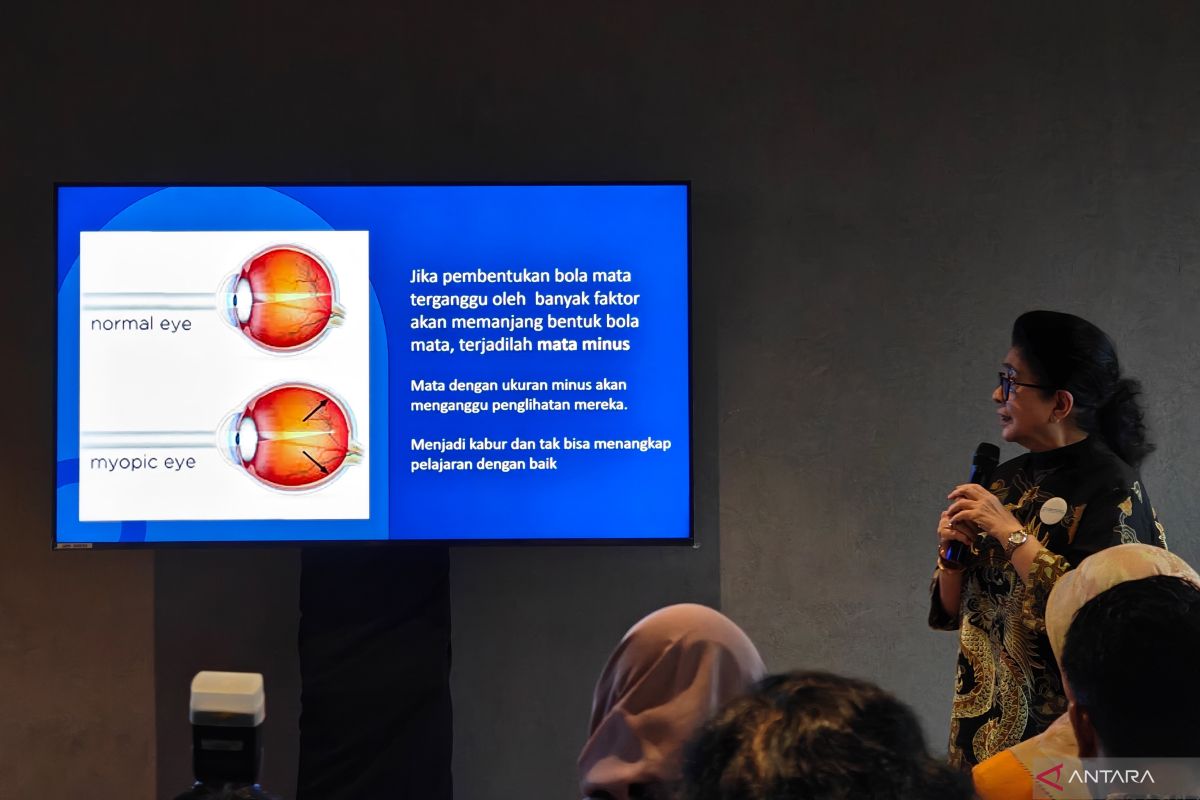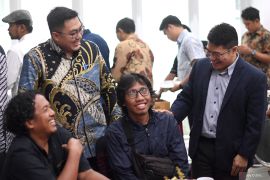Speaking at a public event in Jakarta, Nila said children spent more time studying from home and using digital devices during lockdowns, leading to prolonged near-focus activities that contribute to myopia, or the elongation of the eyeball.
“The human eyeball should be perfectly round with a diameter of about 22 millimeters,” Nila explained.
“But excessive close-up viewing, poor lighting, and smaller eye sockets can cause it to elongate, making light focus in front of the retina and resulting in blurred vision,” she added.
She warned that untreated vision problems can seriously affect children's academic performance, as many struggle to see the board in classrooms and may be wrongly labeled as inattentive.
A recent study conducted with the Refractive Error Disorder Response Unit (SPGR) found that vision impairment among elementary students in Jakarta has jumped to 40 percent, up from just 13 to 15 percent before the pandemic.
“This is alarming. It directly affects learning and can lead to long-term developmental setbacks,” Nila said.
She further noted that providing eyeglasses has significantly helped children with vision issues, improving both comfort and academic outcomes.
“After getting glasses, children are more comfortable learning, and their grades improve,” she said.
Nila called on the government, educators, and parents to prioritize early eye care, urging regular vision screenings in schools to prevent a further decline in the quality of Indonesia’s human resources.
“Vision health must be part of our national education strategy,” she said.
Related news: Indonesia asks Asian-Pacific nations to push human-centered recovery
Related news: Post-pandemic adaptation needs health knowledge dissemination: MPR
Translator: Riezko, Azis Kurmala
Editor: Rahmad Nasution
Copyright © ANTARA 2025












